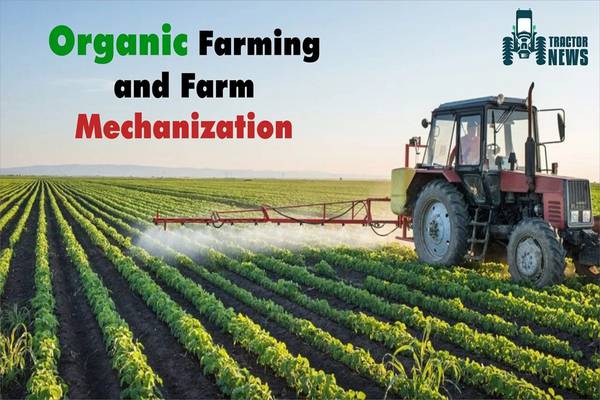Detailed About Organic Agriculture Machinery
Drafted by: vijaychourey26@gmail.com
In recent years, the global agricultural industry has witnessed a paradigm shift towards sustainable and eco-friendly practices. Organic agriculture has emerged as a popular choice among farmers, consumers, and policymakers due to its focus on environmentally friendly techniques and the production of healthy, chemical-free crops. One crucial factor driving the success of organic agriculture is the adoption of advanced organic machinery. In this article, we will delve into the world of organic agriculture machinery, exploring its benefits, innovations, and impact on sustainable farming practices.
The Rise Of Organic Agriculture
Understanding Organic Farming
Before delving into the realm of organic agriculture machinery, it is essential to grasp the fundamentals of organic farming. Organic agriculture emphasizes natural processes, biodiversity, and the limited use of synthetic inputs. Farmers in organic systems prioritize crop rotation, composting, and biological pest control to maintain soil fertility and safeguard the environment.
Advantages of Organic Farming
Organic farming offers numerous advantages, both for farmers and consumers. It reduces soil erosion, conserves water, promotes healthy ecosystems, and produces nutrient-rich crops free from harmful chemicals. Additionally, organic farming is economically beneficial as it often results in higher market prices for organic produce.
The Role Of Organic Agriculture Machinery
Farming Equipment for Organic Practices
The evolution of organic agriculture machinery has played a pivotal role in promoting the adoption of organic farming techniques. Farmers now have access to specialized tools designed to cater to the unique needs of organic production. These include but are not limited to:
Precision Planters and Seeders
Precision planters and seeders ensure accurate and optimal seed placement, enhancing crop yield while reducing seed wastage.
Organic Fertilizer Applicators
Organic fertilizer applicators help distribute compost and natural fertilizers efficiently, enriching the soil with essential nutrients.
Mechanical Weeders
Mechanical weeders minimize the need for herbicides by mechanically removing weeds, reducing labor and chemical costs.
Advancements In Organic Machinery
In recent years, significant strides have been made in organic agriculture machinery technology. Manufacturers are investing in research and development to create innovative solutions for farmers. Some noteworthy advancements include:
Robotic Harvesters
Robotic harvesters are programmed to selectively pick ripe fruits, reducing harvest time and minimizing crop damage.
Solar-Powered Irrigation Systems
Solar-powered irrigation systems are eco-friendly alternatives to conventional irrigation, utilizing renewable energy for sustainable water management.
Drone Technology for Monitoring
Drones equipped with advanced sensors and cameras aid in monitoring crop health and identifying potential issues in real-time.
The Benefits Of Organic Machinery
Improved Efficiency and Productivity
Organic machinery streamlines farming operations, leading to increased efficiency and productivity. Farmers can achieve higher yields while optimizing resource utilization.
Environmental Preservation
By reducing the reliance on synthetic inputs and minimizing the carbon footprint, organic machinery contributes to the preservation of the environment and biodiversity.
Cost Savings
While the initial investment in organic machinery might be higher, the long-term benefits include reduced input costs and potential savings in the form of premium prices for organic products.
Challenges And Solutions
High Initial Investment
One of the primary challenges in adopting organic machinery is the relatively higher upfront cost. However, policymakers and financial institutions can collaborate to provide incentives and financial support to encourage farmers to invest in organic equipment.
Training and Skill Development
Farmers may require training and skill development to effectively operate and maintain organic machinery. Workshops, training programs, and educational initiatives can address this challenge.





